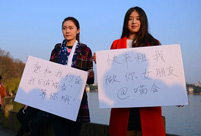


Human cost has become the biggest source of pressure for Chinese enterprises, according to the Chinese Entrepreneur Development Confidence Index issued by the Institute of Minsheng Economic Research at Tsinghua University.
Nearly 80 percent of Chinese business owners considered the spending and burden of tax on the "Five Insurances and One Housing Fund" too heavy. The Central Economic Work Conference held in December 2015 proposed to cut social security contributions and reduce pressure on enterprises.
China's social security system is composed of retirement, unemployment, medical, work injury and maternity benefits, plus housing fund. In 2015, China saw cuts to payment rate of unemployment, work injury and maternity benefits. However, the ratio of these Five Insurances to the total amount of personal salaries reached 39.25 percent.
According to some experts, the payment rate of retirement benefits and medical benefits are expected to be cut to address the issue of overburdening enterprises.
Apart from reducing the rate of retirement benefits, China can raise the minimum threshold for paying retirement benefits, extending the payment period and gradually raising the retirement age, according to Li Zhen, head of the Institute of Social Security at Renmin University.
China should invest more on in its social security fund, and the 15 trillion yuan of state-owned capital should be used to reduce the payment rate of social security benefits, said Xu Shanda, head of SEEC Research Institute. Xu added that reform of the social security system should be carried out. Instead of making the provincial-level government stipulate the plan for retirement benefits, China's central government should create an overall plan, according to Xu.
In addition to making changes to the payment rate of retirement benefits, the ratio of housing fund to personal salaries should also be reduced from 5 percent to 4 percent, or even 3 percent to cut human cost, said Wang Lina, an expert at the Chinese Academy of Social Sciences.
 PLA holds joint air-ground military drill
PLA holds joint air-ground military drill Charming female soldiers on Xisha Islands
Charming female soldiers on Xisha Islands Beautiful skiers wear shorts in snow
Beautiful skiers wear shorts in snow Getting close to the crew on China's aircraft carrier
Getting close to the crew on China's aircraft carrier A beauty's dancing youth
A beauty's dancing youth Chinese stewardess celebrate test flight at Nansha Islands
Chinese stewardess celebrate test flight at Nansha Islands World's first 'underwater skyscraper'
World's first 'underwater skyscraper'  "Rent me as your girlfriend!"
"Rent me as your girlfriend!" Top 10 weapons in the world in 2015
Top 10 weapons in the world in 2015 Top 20 hottest women in the world in 2014
Top 20 hottest women in the world in 2014 Top 10 hardest languages to learn
Top 10 hardest languages to learn 10 Chinese female stars with most beautiful faces
10 Chinese female stars with most beautiful faces China’s Top 10 Unique Bridges, Highways and Roads
China’s Top 10 Unique Bridges, Highways and Roads Visa trap
Visa trap Same-sex, same abuse
Same-sex, same abuse Chinese netizens rank Japan as least-wanted neighbor
Chinese netizens rank Japan as least-wanted neighbor ‘Detective Chinatown’ pays homage to the mystery genre
‘Detective Chinatown’ pays homage to the mystery genreDay|Week